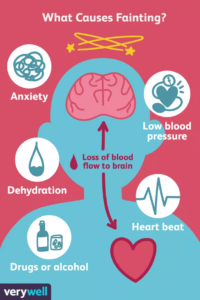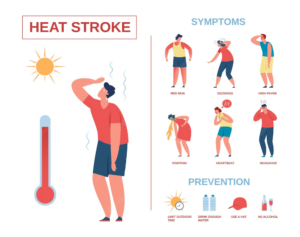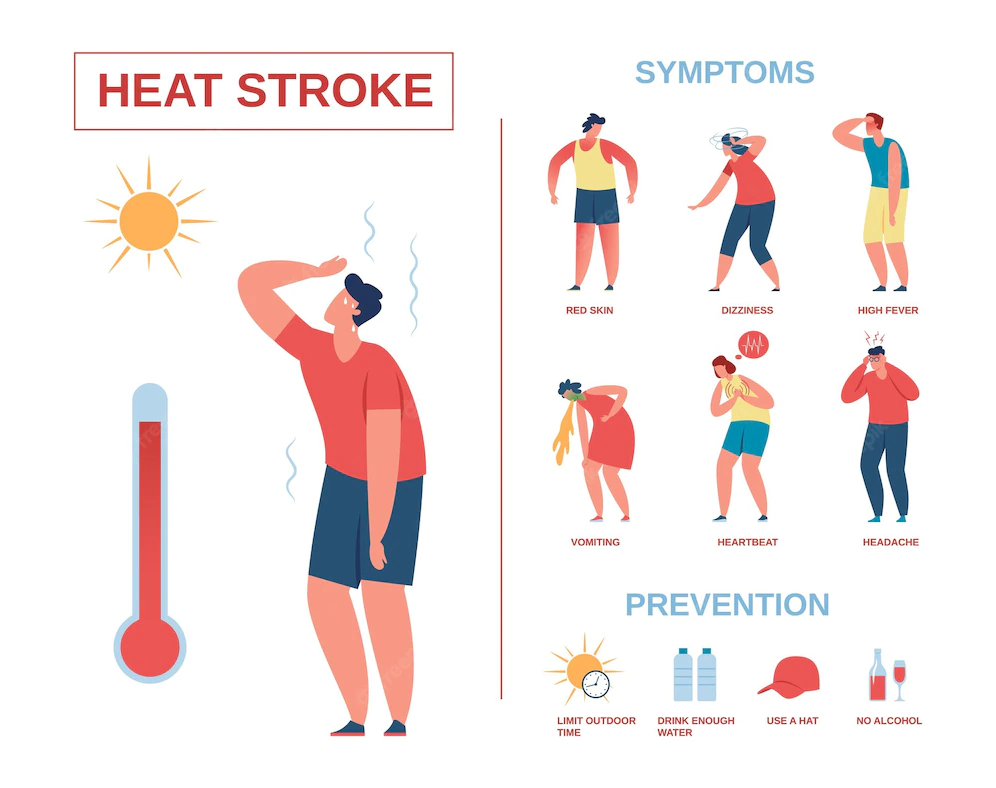Summer is approaching. And all heat and humidity shouldn’t stop us from doing outdoor sports, vacations, etc. But it is also to be remembered that summer is also the time for electrolyte imbalances, dehydration and heatstroke in the worst-case scenario. We all know our bodies are made up of water, so the effects can be far-reaching when we consume less water. Dehydration symptoms are easy to spot. interfere with the body’s natural equilibrium which could result in negative consequences for our physical, mental, and emotional well-being.
“The World Health Organisation defines dehydration as a condition that arises from an excessive loss of water in the body.” Dehydration occurs when there is a deficit of body water when fluid spent is more than the intake. It is classified as severe if the loss of body water is more than 5%.
Mild or moderate, dehydration is uncommon in the general population. It is a serious condition that is being researched. Mild dehydration is described as a loss of 1–2% of body weight, whereas moderate dehydration is defined as a loss of 2–5% of body weight. The change in body water was traditionally measured by the change in body weight since when an individual is in a caloric balance, a decrease in body weight virtually equals water loss. [Cognitive Performance and Dehydration]
We know that Diabetes causes Dehydration. Diabetic people are prone to dehydration. The first symptoms of mild dehydration like dry mouth and excessive thirst are initial indicators of diabetes. Polyuria contributes to further dehydration and on goes the vicious cycle.
Dehydration can come with its reactions.

dehydration and blood pressure
Causes Of Dehydration
Dehydration is caused by a lack of water intake, excessive water loss from the body or a combination of both. However, dehydration can occur for a variety of reasons, including diarrhoea, vomiting, sweating, diabetes, frequent urination and burns. Dehydration can lead to serious complications like urinary tract infections, renal stones, dental caries, seizures and low blood volume shocks.
Symptoms of Dehydration
Symptoms of dehydration differ from person to person. However, few that are commonly experienced are headache, dry skin, lesser urine or darker yellow urine, and a dry mouth. Rapid pulse and heartbeat, low blood pressure, increased thirst, muscle cramping and constipation are some of the other symptoms.

Conclusion
Dehydration is a risk for everyone but the combination of dehydration and diabetes can lead to serious consequences. However, by employing some basic tactics for avoiding dehydration, you can maintain a normal blood sugar level and remain healthy and happy regardless of how hot it is outside. So, this summer before dehydration gets to you, start implementing conscious ways to avoid it. Start by drinking plenty of water and not any caffeinated beverages like soft drinks or coffee. Dehydration can be treated by replenishing the body with water.
Ways to Prevent Hydration
Initial response to dehydration can be increased thirst or reduced output of urine due to water loss.
Set 3 to 4 hours window to drink 1 litre of water.
Homemade lemonade with salt can be consumed.
Eat your water: Eat whole water-rich fruits. Consume a sufficient amount of greens and other vegetables.
Limit your alcohol consumption.
Drink infused water. (Fruits/Vegetables/Herbs)
Maintain a water intake journal.
In serious conditions, to rehydrate, certain patients may require intravenous fluids.
Drinking a sufficient amount of water can increase energy levels, promote weight loss, helps to remove harmful toxins, and helps in distinguishing between thirst and hunger which in turn improves the quantity of food intake. You can try this formula: Water (in litres) per day = Your weight (in Kgs) multiplied by 0.033 to know how much water to drink in a day.
If you want to read about more nutrition, health and fitness-related blogs do visit the Smit.fit website to explore more interesting blogs.



0 Comments